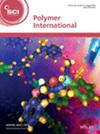求助PDF
{"title":"改善姜黄素特性的玉米蛋白-甲基纤维素二元纳米共轭:可溶性、控释性和抗癌活性","authors":"Sana F Abaza, Nihal S Elbialy, Noha Mohamed","doi":"10.1002/pi.6694","DOIUrl":null,"url":null,"abstract":"<p>For cancer treatment, a novel nanocarrier has been developed, utilizing natural compounds. Zein protein (Z) and methylcellulose (MC) polysaccharide were formulated as a nanocarrier for nutraceutical curcumin (Cur). The zein–methylcellulose nanoconjugate (ZMC) appeared spherical/monodispersed in transmission electron microscopy images. Hydrodynamic sizes were 164 ± 20.2 and 190 ± 28.2 nm for ZMC and ZMC@Cur, respectively. For both formulations, zeta potential, differential scanning calorimetry, Fourier transform infrared spectroscopy and X-ray diffraction analyses were conducted. Curcumin encapsulation efficiency was 92%, and its release profile was pH responsive. Using MTT assay, ZMC@Cur demonstrated a significant cytotoxic effect against MCF-7 and HepG2, surpassing the impact of curcumin. This underscores the pivotal role of ZMC@Cur in enhancing curcumin properties, thereby potentiating cancer cell death. Compared with free curcumin, ZMC@Cur markedly promoted DNA damage in cancer cells, owing to precise curcumin targeting into the nucleus. Accordingly, the proposed bionanocomposite stands as an efficient vehicle for curcumin, showcasing its crucial role in combating cancer via improving the pharmaceutical properties of curcumin. © 2024 Society of Chemical Industry.</p>","PeriodicalId":20404,"journal":{"name":"Polymer International","volume":"74 2","pages":"118-126"},"PeriodicalIF":3.6000,"publicationDate":"2024-08-28","publicationTypes":"Journal Article","fieldsOfStudy":null,"isOpenAccess":false,"openAccessPdf":"","citationCount":"0","resultStr":"{\"title\":\"Binary nanoconjugation of zein–methylcellulose for improving curcumin properties: solubility, controlled release and anticancer activity\",\"authors\":\"Sana F Abaza, Nihal S Elbialy, Noha Mohamed\",\"doi\":\"10.1002/pi.6694\",\"DOIUrl\":null,\"url\":null,\"abstract\":\"<p>For cancer treatment, a novel nanocarrier has been developed, utilizing natural compounds. Zein protein (Z) and methylcellulose (MC) polysaccharide were formulated as a nanocarrier for nutraceutical curcumin (Cur). The zein–methylcellulose nanoconjugate (ZMC) appeared spherical/monodispersed in transmission electron microscopy images. Hydrodynamic sizes were 164 ± 20.2 and 190 ± 28.2 nm for ZMC and ZMC@Cur, respectively. For both formulations, zeta potential, differential scanning calorimetry, Fourier transform infrared spectroscopy and X-ray diffraction analyses were conducted. Curcumin encapsulation efficiency was 92%, and its release profile was pH responsive. Using MTT assay, ZMC@Cur demonstrated a significant cytotoxic effect against MCF-7 and HepG2, surpassing the impact of curcumin. This underscores the pivotal role of ZMC@Cur in enhancing curcumin properties, thereby potentiating cancer cell death. Compared with free curcumin, ZMC@Cur markedly promoted DNA damage in cancer cells, owing to precise curcumin targeting into the nucleus. Accordingly, the proposed bionanocomposite stands as an efficient vehicle for curcumin, showcasing its crucial role in combating cancer via improving the pharmaceutical properties of curcumin. © 2024 Society of Chemical Industry.</p>\",\"PeriodicalId\":20404,\"journal\":{\"name\":\"Polymer International\",\"volume\":\"74 2\",\"pages\":\"118-126\"},\"PeriodicalIF\":3.6000,\"publicationDate\":\"2024-08-28\",\"publicationTypes\":\"Journal Article\",\"fieldsOfStudy\":null,\"isOpenAccess\":false,\"openAccessPdf\":\"\",\"citationCount\":\"0\",\"resultStr\":null,\"platform\":\"Semanticscholar\",\"paperid\":null,\"PeriodicalName\":\"Polymer International\",\"FirstCategoryId\":\"92\",\"ListUrlMain\":\"https://onlinelibrary.wiley.com/doi/10.1002/pi.6694\",\"RegionNum\":4,\"RegionCategory\":\"化学\",\"ArticlePicture\":[],\"TitleCN\":null,\"AbstractTextCN\":null,\"PMCID\":null,\"EPubDate\":\"\",\"PubModel\":\"\",\"JCR\":\"Q2\",\"JCRName\":\"POLYMER SCIENCE\",\"Score\":null,\"Total\":0}","platform":"Semanticscholar","paperid":null,"PeriodicalName":"Polymer International","FirstCategoryId":"92","ListUrlMain":"https://onlinelibrary.wiley.com/doi/10.1002/pi.6694","RegionNum":4,"RegionCategory":"化学","ArticlePicture":[],"TitleCN":null,"AbstractTextCN":null,"PMCID":null,"EPubDate":"","PubModel":"","JCR":"Q2","JCRName":"POLYMER SCIENCE","Score":null,"Total":0}
引用次数: 0
引用
批量引用


 求助内容:
求助内容: 应助结果提醒方式:
应助结果提醒方式:


